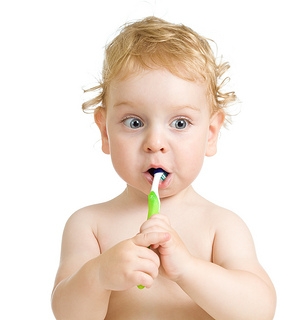Seal of Approval
April 24th, 2024

Outside activities? You slather your kids with sunscreen. Biking? You don’t let your child leave the house without a helmet. Youth sports? You provide mouthguards and padding and headgear and all the other tools designed to keep your child safe. Protecting your child is a fundamental part of parenthood, and you take your job seriously.
Protecting your child’s dental health is fundamental, too! Tooth decay is the most common chronic disease in children, and children’s premolars and molars are far more vulnerable to decay than any of their other teeth. You can help protect your child’s molars and premolars with a simple and effective treatment—dental sealants.
- How Do Sealants Work?
The bacteria in plaque use food particles to create acids. These acids erode the minerals in tooth enamel, creating weak spots that become cavities over time. Molars and premolars are especially vulnerable to cavities because of their uneven chewing surfaces. The dips and grooves on top of the teeth—technically known as “pits and fissures”—collect food particles and bacteria, and can be difficult for children to clean completely when brushing. That’s why cavities are so common in newly erupted molars.
Dental sealants protect your child’s molars and premolars by creating a barrier that covers and smooths out the chewing surface of the tooth, preventing bacteria and food particles from getting stuck inside those uneven pits and fissures.
- What Kind of Sealants Are Available?
The two most common dental sealants are composite resin coatings and glass ionomer sealants.
With resin sealants, after each tooth is cleaned and dried, an etching solution will be brushed onto the top surface of the molar. This etching slightly roughens the surface so that the sealant will stick to the tooth more effectively. A thin coat of the sealant is then painted on and hardened under a special curing light.
Glass ionomer sealants use a flexible paste that bonds to the tooth and hardens within minutes. While they generally don’t last as long as resin sealants, they are designed to absorb and release fluoride for extra cavity-fighting protection.
- Do Sealants Work?
They certainly do! According to the Centers for Disease Control, sealants can prevent 80% of the cavities in molars and premolars, which is where 90% of children’s cavities appear. Dental sealants can last from three to five years, or even longer. Dr. Diane Colter will check the condition of any sealants at each dental exam, and let you know if it’s time for a reapplication.
- When’s the Best Time to Get Sealants?
Tooth enamel gets harder as we get older, so children’s newly erupted teeth are more at risk for cavities. First adult molars usually arrive when a child is six to seven years old, and second adult molars come in around the age of 12. The first and second premolars can erupt between the ages of ten to 12. As soon as the first permanent molars begin to erupt, it’s a good time to talk to Dr. Diane Colter about the best time to apply sealants.
And what about baby teeth? Even though baby teeth are meant to be replaced, they shouldn’t be lost to tooth decay before they are ready to fall out. Primary teeth help young children learn to speak and eat properly and hold the place for adult teeth so these permanent teeth come in where they should. Baby teeth have thinner enamel, and so cavities can progress more quickly. Dr. Diane Colter can let you know if sealant protection for your child’s baby molars is indicated.
Applying sealants at our Dallas office is a safe, simple, cost-effective, and painless process. Dental sealants are one more tool you can use to make protecting your child’s dental health a little easier and a lot more effective. That gets a well-deserved parents’ seal of approval!

 (972) 233-4439
(972) 233-4439 Dallas
Dallas Schedule Now
Schedule Now





 Website Powered by Sesame 24-7™
Website Powered by Sesame 24-7™